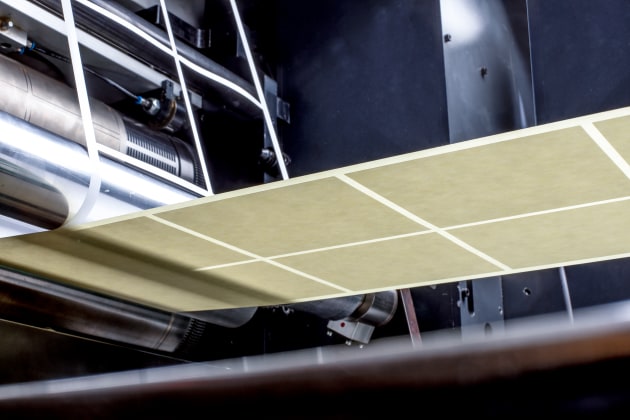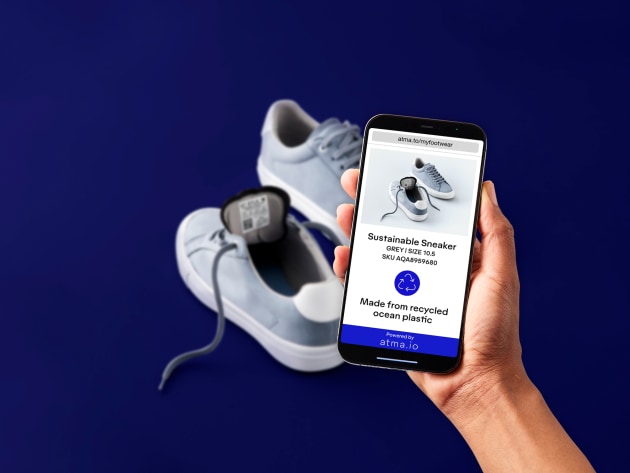Collaboration is the key to moving beyond sustainability and into regeneration, according to Cath Cornaggia, commercial director, Label and Packaging Materials, Australia and New Zealand at Avery Dennison, who shares her insights with PKN.
Sustainability has become the accepted norm in the packaging industry, particularly in countries like Australia where it is a critical part of a client’s brief. Here at Avery Dennison, we are focusing on regeneration as the natural evolution beyond sustainability.
However, to achieve regeneration, we need to look at new products, new technologies, alternative supply chains and business models that actively replenish rather than remove from our planet.
Imagine a world where every product in your household is ‘etched’ with a code which is triggered when it is taken away by rubbish trucks. Instead of consumers separating their products, we’d all just have one bin to put everything into, and the digitisation of the supply chain will allow for this to be separated and repurposed with ease.
Sounds a little futuristic? Well, with digitised supply chains and intelligent packaging this is really just around the corner.

Climate chaos is looming – but intelligent solutions can help soften the blow
We are in a fortunate position here in Australia and New Zealand – we’re ahead of a lot of the rest of the world in our sustainability and Environmental, Social and Governance (ESG) ventures and our governments are very vocal about the impending need for businesses to transform. However, I can confidently say our industry is not ready to do this on its own, and we’re ready to change that.
The impacts of climate change are becoming increasingly obvious across our country – bush fires, droughts, and extreme flooding in Sydney recently, is becoming the new normal. While it is on governments and decision makers to guide us – we as an industry are responsible for doing what we can. Whether that be adhering to new criteria, sustainability reporting, digitising supply chains or helping to educate others.
Labelling and packaging suppliers don’t immediately spring to mind when you think about the circular and regenerative economy. Playing a leadership role in this transition requires us to think more broadly as a solutions provider, not just as a supplier. For example, we have put a lot of work into developing intelligent labels which have the potential to streamline recycling processes and reduce waste on a massive scale.
Currently, digitising supply chains is not front of mind for our converters – intelligent labels are seen as a separate business. We want to see the industry transform in a way where there is no action for the consumer, and it is all taken care of by the labelling manufacturers.
As industry leaders, we must take a forward-looking view of how we can create less waste and focus on regeneration. It is more than just talking the talk, we’ve got to walk the walk – which is why we’ve pledged to reduce our Scope 1 & 2 emissions by 70 per cent, and Scope 3 emissions by 30 per cent by 2030. By 2025 we’ve pledged to deliver innovations that enhance the circular economy, reduce environmental impact in our operations and supply chains, and make a positive social impact by enhancing the livelihood of our people and communities.
Waste reduction is an important part of our work in moving to this next step and it requires a joint effort between all stakeholders in the value chain. Not one company alone will be able to solve the problem of waste on its own. We need to collaborate across the industry to drive change.

Collaboration over Competition
To drive this change, we need to empower others in our industry to become aware of what it means to be a part of a regenerative economy. The journey to net-zero is undoubtedly overwhelming, and we can appreciate that individuals and small businesses don’t know where to start. We believe the best bet we all have is working collaboratively instead of competing.
For this reason, we have created AD Stretch, the first program in the labels industry aimed at partnering with start-up innovators to solve key challenges and create new opportunities within sustainability, customer experience and value chains. We’ve successfully launched the program in the Asia Pacific and Latin America regions early this year, which will be followed by Europe and the US. In late August, we announced the first five start-ups we will be collaborating with across Asia Pacific, including Australia.
We have another important initiative called AD Circular which connects the entire value chain, bringing together brands and recyclers to find new solutions and turn label waste into new products. The program allows us to recycle paper liner into tissue paper which can then be recycled after use.
We relaunched our AD Circular initiative in Asia Pacific last year. The regional AD Circular program partners with professional recyclers in China and India to provide customised waste recycling solutions based on the waste generation situations of different companies. The program also helps companies establish a waste-management ledger, to help promote traceability and transparency.
Our life cycle analysis tool measures the environmental impact of our products, such as carbon footprint, water usage, and energy usage. This is especially important here in Australia, as the number of self-adhesive labels used here has grown at a relatively rapid rate in recent years. At the same time, there has been a lack of extensive and effective closed-loop recycling solutions for the label waste, which is often incinerated or landfilled.

Every person and every small step can help drive future success
It all comes down to having the right people and ensuring everyone understands the vision for the company, their people, their clients, and our planet. We need to see ourselves as an extension of the communities where we live and work. Strong values and ethics can really shape the way companies work with their customers and the community.
One local initiative we’re passionate about here in Melbourne is an opportunity we had to volunteer at an amazing charity, St Kilda Mums. This organisation collects, cleans, safety checks and repurposes items for babies, children, and families – and then donates them to those less fortunate in the community. In the 2020 financial year, they were able to re-home $7 million worth of items that otherwise would have likely ended up in landfill. We were very fortunate to be able to spend the day working with the fabulous volunteers that run this organisation.
And earlier this year, Avery Dennison became a certified Great Place to Work. This means we’re recognised as a great workplace where employees trust the people they work for, have pride in what they do and enjoy the company of people they work with.
Looking to the future, I hope our industry can work collaboratively towards a greater good. My door is always open to chat about how we can turn ideas into reality.
This article was first published in the September-October 2022 print issue of PKN Packaging News, p18.






